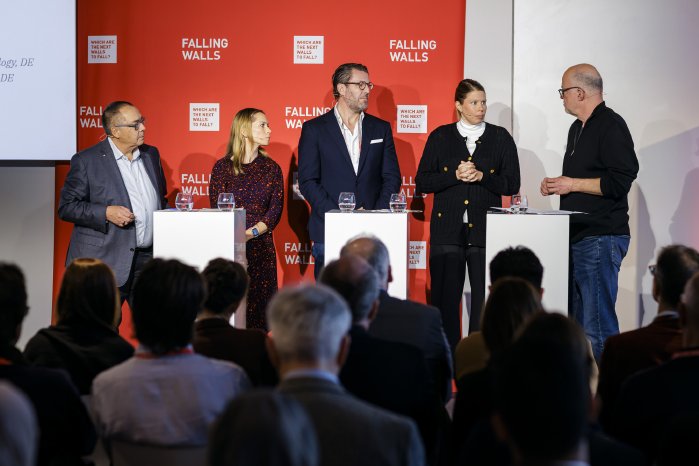AI Regulation: Challenges and Approaches
Regulating AI in a rapidly evolving technological landscape is rather challenging. Amélie Heldt emphasized the need for long-lasting rules that strike a balance between specificity and adaptability. She noted that court interpretations will be key to shaping how these regulations are applied. Urs Gasser highlighted the diversity of global governance models, contrasting Europe’s hard law approach with the softer frameworks used in countries like Singapore and Brazil. Both panelists agreed that regulatory frameworks must allow for learning and adaptation as AI technologies develop.
Isa Sonnenfeld underscored the importance of collaborative governance, noting that regulation must be agile and responsive to technological advancements. Europe is lagging behind, which makes it necessary to provide regulatory frameworks that are designed to encourage innovation. Helmut Krcmar emphasized domain-specific regulations, advocating for tailored approaches in areas like healthcare and sustainability, rather than rigid, universal rules.
The Role of Innovation in AI Governance
All experts agreed that fostering innovation is essential for effective AI governance. Isa Sonnenfeld stressed the need for co-creation between academia, industry, and government to drive innovation while mitigating risks. She advocated for an entrepreneurial mindset in policymaking, allowing for flexibility and adaptation. Helmut Krcmar echoed this sentiment and pointed to the pivotal role of universities as TUM with its campus in Heilbronn “for the digital age” where management and digitalization are explicitly combined to provide solutions for businesses. Krcmar highlighted the importance of integrating AI into real-world applications, where Europe has a competitive advantage. He argued that domain-specific expertise could enable Europe to lead in applying AI solutions, even if it does not dominate in developing core technologies.
Societal Impact and the Future of AI
The discussion also touched on the broader societal implications of AI. Urs Gasser pointed out the lack of clear societal goals in current governance strategies, leaving policymakers to navigate without a cohesive vision. He emphasized the importance of regulatory learning across jurisdictions to create a more unified approach. Isa Sonnenfeld highlighted the pivotal role of education, arguing that societies must better understand AI’s risks and opportunities to strengthen democracy and societal resilience.
Helmut Krcmar added that AI governance must focus on ethical questions and ensure that regulations align with societal needs. He called for a shift from passive criticism to proactive engagement, urging stakeholders to prioritize action over complaints.
Impact of a new US governement
The panelists noted significant implications for AI regulation in 2025, when Donald Trump will return to the presidency. The geopolitical competition with China would likely dominate AI policymaking, argued Urs Gasser, with regulation focusing more on strengthening the U.S. position in a perceived global AI arms race. Amélie Heldt expressed concerns that the Trump administration might deprioritize international collaboration, such as the EU-U.S. Trade and Technology Council, and reduce funding for international organizations like the OECD, which play a critical role in advancing AI governance. Isa Sonnenfeld emphasized the potential for Europe to seize this moment of uncertainty to focus on fostering ethical and responsible AI innovation, positioning itself as a leader in democratic and societal values.


